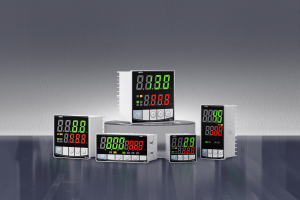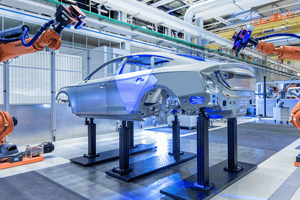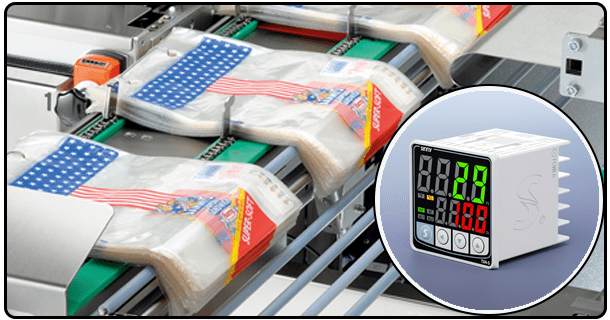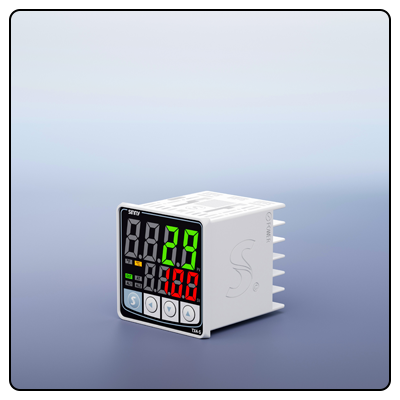What is a Temperature Control System and Why Do You Need It
Discover the importance of temperature control systems and why you need them. Learn about the benefits, applications, and how to choose the right temperature controller for your needs.
1. Introduction
Temperature control is integral to many industrial, commercial, and household applications, including product quality assurance and energy savings. A temperature control system exists to monitor and regulate temperatures to a desired setpoint. This article explores what such systems entail and their relevance in various settings, emphasizing their role as precise temperature management solutions.
1. Understanding Temperature Control Systems
Definition:
A temperature control system is any arrangement designed to maintain an ideal environment by monitoring current conditions and adjusting as required. Key components include temperature sensors, control units, and heating or cooling elements. An electronic temperature controller serves as its brain, processing sensor data before activating heating/cooling elements to keep temperatures constant.
Types of Temperature Control Systems:
There are two broad categories of temperature control systems: open-loop and closed-loop systems. While open-loop systems lack feedback to adjust their temperatures more precisely, closed-loop systems continuously monitor and change based on this feedback, offering more accurate control. Join closed loop controllers used in industrial applications for accuracy, including PID controllers, which utilize PID feedback control techniques to ensure more precise temperature regulation.
2. How Temperature Control Systems Operate
Monitoring and Adjustment:
Temperature control systems work by continuously observing actual temperature with sensors that send information back to a control unit for processing, which then evaluates it and decides on any adjustments required before activating heating/cooling elements to bring temperature closer to its desired setpoint. A temperature controller plays an essential part in responding accurately and quickly in case any temperature fluctuations arise.
Feedback Mechanism:
Closed loop systems rely heavily on feedback mechanisms for accurate temperature regulation. By continuously comparing actual temperatures against setpoint temperatures and adjusting accordingly, feedback loops help maintain stability within desired ranges by making instantaneous changes as required - an especially crucial asset in applications where fluctuations could have lasting consequences. Specifically in industrial processes where fluctuations could have catastrophic results.
3. Advantages of Temperature Control Systems
Improved Accuracy:
Temperature control systems offer numerous advantages over manual temperature adjustments, with increased accuracy being one of them. Precise temperature management is essential to pharmaceuticals, food production, and electronics manufacturing industries, where even minor temperature variances may impact product quality or safety. Reliable temperature controllers ensure their system maintains desired temperatures with minimum fluctuations for consistent, high-quality outputs.
Energy Efficiency:
Temperature control systems can dramatically cut energy use by optimizing heating and cooling elements more effectively to meet desired temperature needs more efficiently, thus decreasing wasteful energy use while simultaneously cutting operational costs - an especially helpful feature in large industrial settings where energy savings may be substantial. An advanced temperature controller may further boost this effectiveness with intelligent control algorithms that adapt system operation based on real-time conditions, optimizing its effectiveness as an energy saver.
Enhanced Safety:
Temperature control systems play a vital role in enhancing safety by preventing overheating or overcooling. In industrial settings, uncontrolled temperature fluctuations can lead to equipment damage, product spoilage, or even hazardous situations. A well-maintained temperature controller ensures that the system operates within safe temperature limits, protecting both equipment and personnel. This is especially important in applications involving flammable or sensitive materials, where precise temperature control is critical for preventing accidents.
4. Applications of Temperature Control Systems
Industrial Applications:
Temperature control systems have become integral to many industrial processes to ensure product quality and consistency. Automotive industries depend heavily on precise temperature regulation for painting, welding, and curing processes. In contrast, electronics producers depend on stable temperatures for producing semiconductors and other sensitive components requiring temperature stability for optimal manufacturing quality. A reliable temperature controller plays an essential part here by providing accuracy and stability necessary for producing top quality production outputs.
Commercial Applications:
Temperature control systems in commercial settings are used to maintain comfortable indoor climates while simultaneously optimizing energy usage. HVAC (Heating, Ventilation, and Air Conditioning) systems depend on temperature controllers to efficiently regulate indoor climates while simultaneously minimising energy consumption and increasing occupant comfort while decreasing consumption costs. Additional features like remote monitoring can further improve the effectiveness and convenience of these HVAC systems in business settings.
Household Applications:
Temperature control systems can also be found in appliances like ovens, refrigerators, and air conditioners for optimal performance and energy efficiency. Smart home temperature controllers add further advantages by enabling users to monitor and adjust temperatures using smartphones or other devices remotely - not only does this add convenience, but it can also help save energy, as more precise control enables more precise savings by helping reduce household temperatures more accurately.
5. Choosing the Right Temperature Control System
Assessing Your Needs:
Before you purchase a temperature control system, it's essential that you carefully consider all of your specific needs and application requirements. Consider factors like desired accuracy levels, type of process/environment needs, and available budget - understanding these needs will allow you to find one that satisfies these specifications while offering enough control to meet them all.
Types of Temperature Controllers:
There are various kinds of temperature controllers on the market today, each offering specific advantages and drawbacks. On/Off controllers may provide cost-effective yet insufficient precision in particular applications; proportional controllers offer better accuracy by adjusting output based on deviation between actual temperature and setpoint; PID controllers provide precise temperature regulation by continually altering output using proportional, integral, and derivative calculations; selecting which temperature controller best meets your application and control needs will ultimately come down to personal choice and personal choice based solely upon personal choice!
Installation and Maintenance:
Proper installation and regular maintenance are key elements to ensure optimal temperature control systems perform as intended. When it comes to installation, follow your manufacturer's installation guidelines to avoid common installation-related problems like incorrect wiring or sensor placement, while regular calibration and inspection help maintain accuracy and ensure reliable temperature regulation over time. A well-kept temperature controller ensures it operates effectively for continuous temperature regulation over time.
6. Conclusion
Temperature control systems are vital to meeting desired temperature standards in various industrial, commercial, and household applications. Their numerous benefits include enhanced accuracy, energy efficiency, and improved safety - selecting and adequately maintaining an ideal system can guarantee optimal performance and reach the level of control desired for specific uses.
- What Is a Temperature Controller: Types, Sensors, Outputs and Applications
- Top Features to Consider in a Temperature Controller























